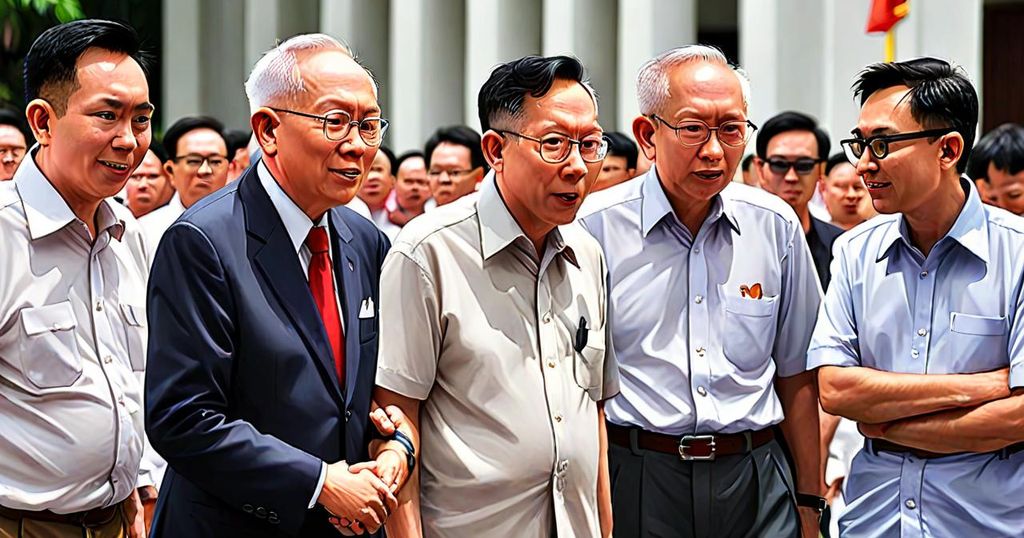The era of Lee Kuan Yew’s leadership in Singapore brought about a unique and formidable style of governance that has left an indelible mark on the country. In the present day, as the political landscape continues to evolve, questions arise about the ability of the current government to adapt to new challenges.
Critics have voiced concerns that the ruling party has veered off course from its original path. There is a sentiment that the party has strayed from the values and principles set forth by its founding leaders, especially Lee Kuan Yew. However, it is important to note that the current state of the People’s Action Party (PAP) is a natural progression from the foundations established during Lee’s leadership.
The Singaporean government under Lee Kuan Yew was characterized by his tough, yet effective, approach to governance. His unwavering determination and vision for a postcolonial Singapore drove the nation towards progress, often through authoritative measures. However, the more recent leadership has seen a shift towards a more consultative and inclusive style, while still upholding the fundamental principles set forth by Lee.
The political and economic landscape in Singapore has transformed immensely, driven by factors such as urbanization, economic development, and globalization. While these changes have contributed to the nation’s material success, they have also brought about new challenges, such as income inequality and social exclusion.
The notion of meritocracy, which has been a fundamental element of Singapore’s success, has come under scrutiny for perpetuating elitism and leaving behind those who have not been able to thrive in the competitive environment. This has led to a growing disillusionment among some Singaporeans, who feel that the rich and powerful are living a starkly different reality from the majority of citizens.
The evolving circumstances and challenges faced by Singapore call for fresh perspectives and innovative approaches from the government. The ability of the current system to address these issues is being called into question, prompting a discussion on whether the 4G leaders can bring about substantial changes to a system that has historically been successful.
The ongoing narrative of political development in Singapore reflects a complex interplay of factors, including economic globalization, technological advancement, and social inequality. The need for the government to adapt to these changing dynamics is essential in ensuring the nation’s continued success.
As the Singaporean government navigates the complexities of modern governance, the monumental efforts of its leaders to achieve national success are at a critical juncture. The ability to address fatal flaws and constructively control the nation’s trajectory will define the future of Singapore.
In conclusion, the changing times call for a government that can adapt to new challenges and build upon the legacy of its founding leaders. The ability of the current leadership to navigate the complexities of modern governance will shape the future of Singapore.
Kenneth Paul Tan, a Professor of Politics, Film, and Cultural Studies at Hong Kong Baptist University, provides valuable insights into the evolving dynamics of governance in Singapore. His expertise offers a deeper understanding of the challenges and opportunities that lie ahead for the nation.

Leave a Reply